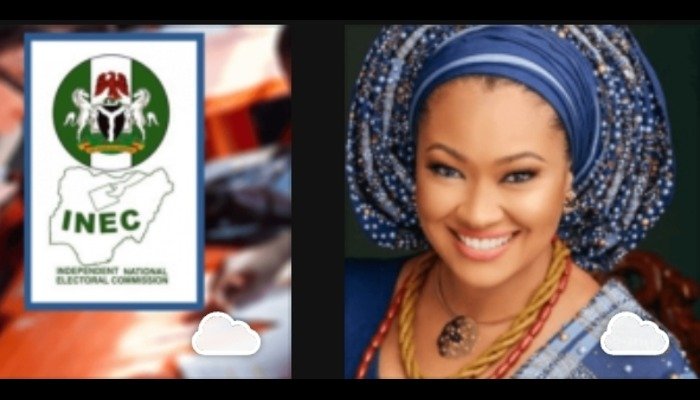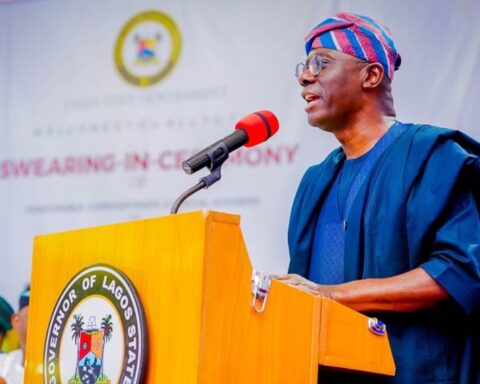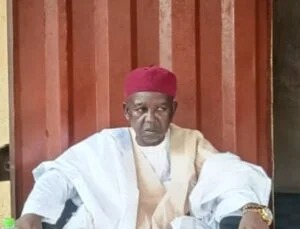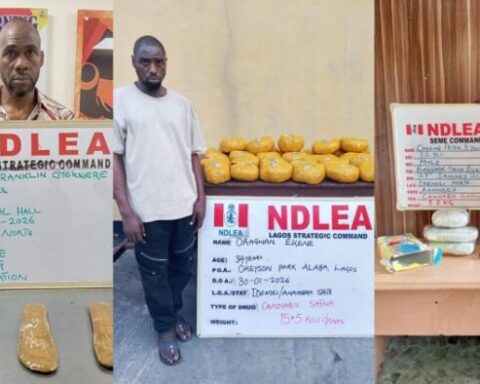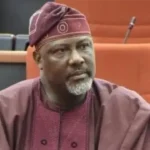The Independent National Electoral Commission (INEC) has explained that it rejected the recall petition against the Senator representing Kogi Central Senatorial district, Mrs. Natasha Akpoti-Uduaghan, because the petitioners lacked due diligence in arriving at the recall petition.
INEC sources, according to a Daily Sun report, explained that, apart from the petition failing to meet the constitutional requirement of Section 69 (a), those behind the recall were also not very meticulous in prosecuting the recall.
“Even if there is any external pressure on the commission to accept the recall, or higher power backing the commission to take the final decision it took, the petitioners behind the recall woefully failed in prosecuting the processes in a convincing manner,” a source said.
“In a situation like the one at hand, it was easy for the commission to hide under the Constitution of Nigeria to make the final decision it took. It was just obvious that the petitioners did not just do due diligence in approaching the recall. The failure was obvious during the verification process.”
INEC, earlier in a statement by Sam Olumekun, National Commissioner and Chairman, Information & Voter Education Committee, had noted that across the 902 Polling Units in 57 Registration Areas and five Local Government Areas (LGAs) that make up the Senatorial District, 208,132 signatures/thumbprints from the submission were made by the petitioners.
After enumerating the measures it took to review the petition, the commission noted explicitly that no further action shall be taken on the recall of the Senator.
“The commission held its regular weekly meeting and among other issues, considered and approved the report of its physical count of the signatures/thumbprints forwarded with the petition for the recall of the Senator representing Kogi Central Senatorial District, in line with Clause 2(b) of the Regulations and Guidelines for Recall 2024.”
“The commission had assured Nigerians that it would handle the matter with fairness to the parties involved and in line with the provisions of the law and our regulations and guidelines.
“First, we ensured that the petitioners complied with the requirements for the submission of the petition. Secondly, we notified the member sought to be recalled in writing, copied the presiding officer of the Senate and simultaneously published the notice on our website.
“Thirdly, we informed Nigerians that the next step would be to carefully ascertain the number of signatures/thumbprints to ensure that the petition complies with the requirement of the law. This exercise has now been completed.
“For emphasis, a petition for the recall of a Senator must comply with the provision of Section 69(a) of the Constitution of the Federal Republic of Nigeria 1999 (as amended), which requires the signatures of more than one-half of the registered voters in the constituency.
“The total number of registered voters in the Kogi Central Senatorial District is 474,554. More than one-half of this figure (i.e. 50%+1) is 237,277+1 which is at least 237,278 voters,” the statement read.
Giving further updates on how it arrived at its final decision, the electoral umpire noted: “Across the 902 Polling Units in 57 Registration Areas and five LGAs that make up the Senatorial District, the commission ascertained 208,132 signatures/thumbprints from the submission made by the petitioners. This translates to 43.86% of the registered voters which falls short of the constitutional requirement by 29,146 signatories.
“Consequently, the petition has not met the requirement of Section 69(a) of the Constitution. Therefore, no further action shall be taken on the recall of the Senator.
“In line with the provision of Clause 2(d) of the Regulations and Guidelines for Recall 2024, the commission has issued a public notice to that effect which is also copied to the presiding officer of the Senate.
“The Public Notice, along with a summary of the review of the signatures/thumbprints of the petitioners, which are disaggregated by LGAs, are available on our website and social media platforms for public information,” the statement surmised.
